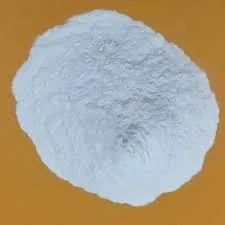
Nov . 30, 2024 12:43 Back to list
Understanding the Applications of Hydroxyethyl Cellulose in Various Industries
Understanding Hydroxyethyl Cellulose and Its Uses
Hydroxyethyl cellulose (HEC) is a non-ionic, water-soluble polymer derived from cellulose, which is a natural polymer found in the cell walls of plants. It is produced through the reaction of ethylene oxide with cellulose, resulting in a versatile compound widely utilized in various industries for its unique properties.
Properties of Hydroxyethyl Cellulose
HEC has several key characteristics that make it a valuable additive in many applications. One of the most notable features is its ability to dissolve in water, forming a clear and viscous solution. This property is essential for its functions as a thickener, film-former, and stabilizer. Additionally, HEC is known for its excellent adhesion, dispersibility, and emulsion stabilization. It is also biodegradable, making it an environmentally friendly option compared to some synthetic polymers.
Applications of Hydroxyethyl Cellulose
Hydroxyethyl cellulose finds applications across a variety of fields due to its beneficial properties. Below are some of the most common uses
1. Cosmetics and Personal Care Products HEC is extensively used in the cosmetic industry for its thickening and stabilizing properties. It can be found in lotions, creams, shampoos, and other personal care products. HEC helps to improve the texture and consistency of these products and enhances their performance by keeping ingredients evenly distributed, providing a smooth finish upon application.
2. Pharmaceuticals In the pharmaceutical sector, hydroxyethyl cellulose is used as a binder, thickening agent, and stabilizer in tablet formulations and liquid medications. Its water-soluble nature allows it to facilitate the controlled release of active ingredients, enhancing the efficacy of various drug forms.
what is hydroxyethyl cellulose used for

3. Construction Industry HEC plays a crucial role in construction materials, particularly in cement, adhesives, and tile grouts. It improves the workability and application of these materials, providing better adhesion and reducing water loss during the curing process. This results in stronger and more durable constructions.
4. Food Industry Hydroxyethyl cellulose is used as a food additive, often to improve the texture and viscosities of products such as sauces, dressings, and dairy products. It serves as a stabilizer, emulsifier, and thickener, enhancing the overall quality and mouthfeel of food items without altering their flavor.
5. Paints and Coatings In the coatings industry, HEC is employed as a thickener and stabilizer for water-based paints. It helps to maintain the consistency of the paint formulation, improving application properties such as spreadability and leveling. Additionally, HEC reduces the likelihood of settling and provides a uniform finish.
6. Agriculture Hydroxyethyl cellulose is also used in agricultural products such as pesticides and herbicides. It helps to improve the dispersion of active ingredients and enhances the adhesion of sprays to plant surfaces, ensuring more effective pest control and weed management.
7. Household Products HEC is a common ingredient in various household products, including cleaning agents and detergents. Its ability to create viscosity and stabilize formulations makes it an essential component for improved cleaning efficiency and user experience.
Conclusion
Hydroxyethyl cellulose is a versatile polymer that plays a significant role in numerous industries, from cosmetics to pharmaceuticals and construction to food production. Its water-soluble nature and ability to thicken, stabilize, and emulsify make it an invaluable ingredient in enhancing product performance and quality. As industries continue to innovate, the demand for hydroxyethyl cellulose is likely to grow, solidifying its place as a key component in modern formulations. Whether in your favorite lotion, a medication, or the paint used in home improvements, HEC is likely at work contributing to the functionality and effectiveness of products we use every day.
-
Versatile Hpmc Uses in Different Industries
NewsJun.19,2025
-
Redispersible Powder's Role in Enhancing Durability of Construction Products
NewsJun.19,2025
-
Hydroxyethyl Cellulose Applications Driving Green Industrial Processes
NewsJun.19,2025
-
Exploring Different Redispersible Polymer Powder
NewsJun.19,2025
-
Choosing the Right Mortar Bonding Agent
NewsJun.19,2025
-
Applications and Significance of China Hpmc in Modern Industries
NewsJun.19,2025







